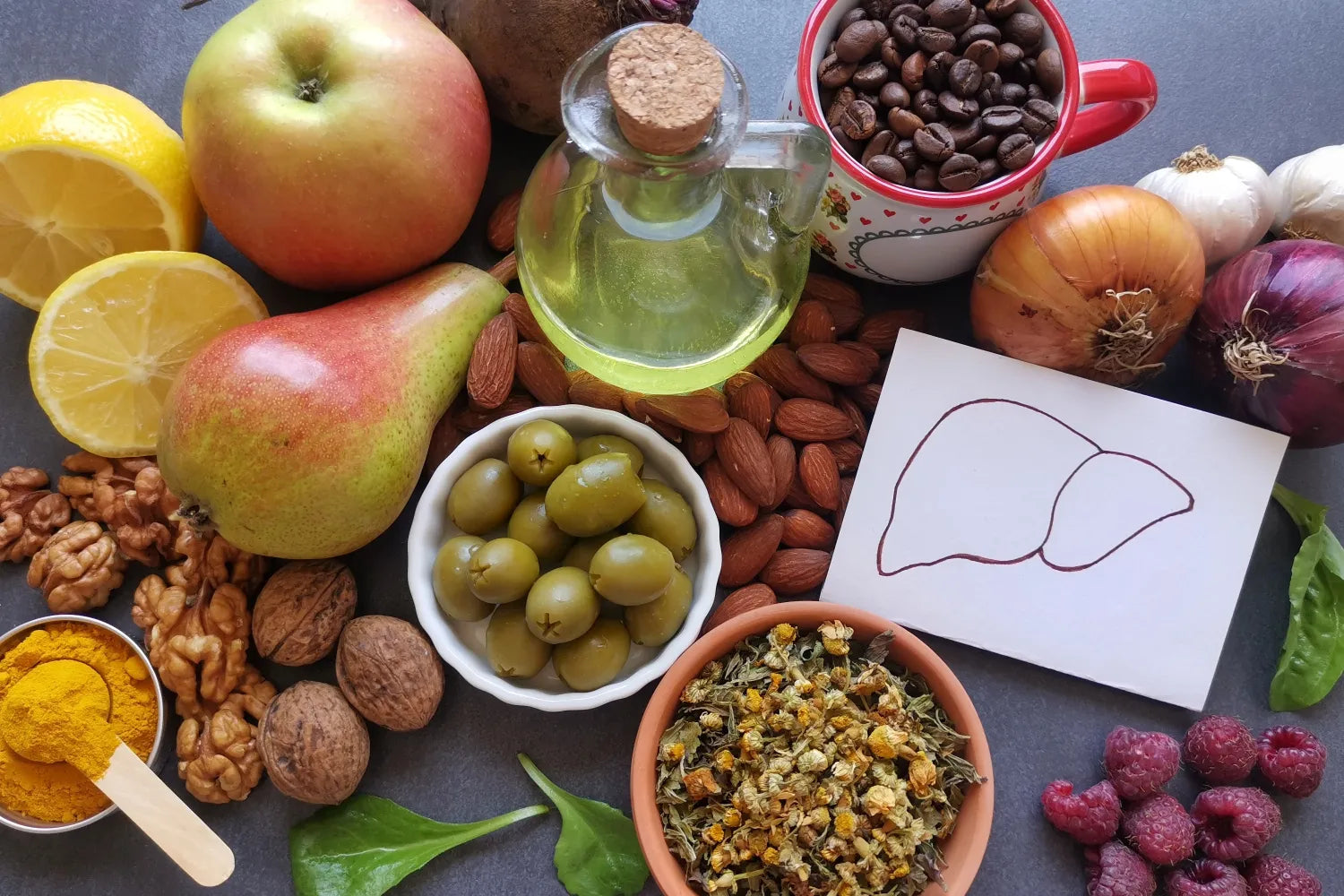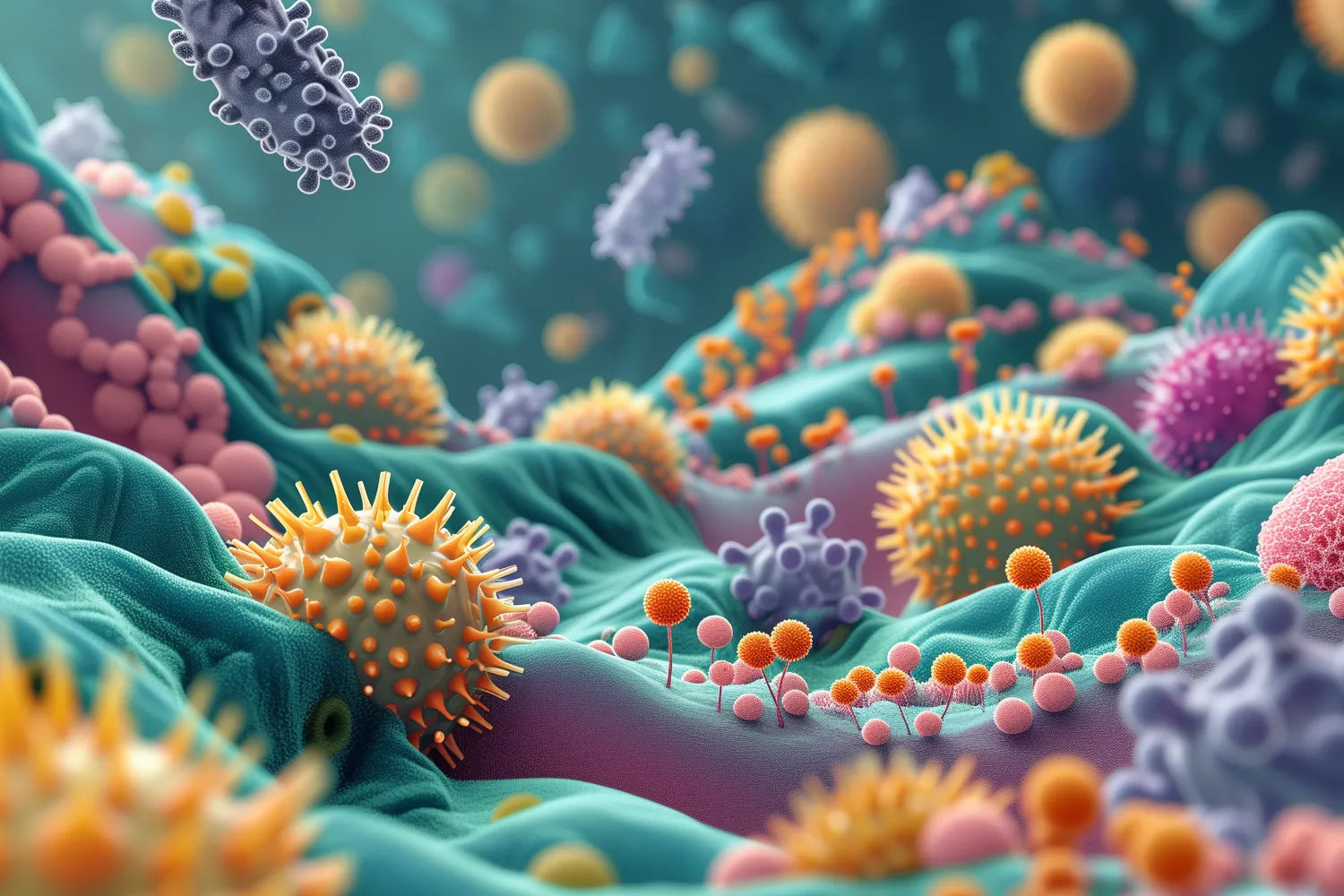
Dr. Eric Venn-Watson’s Highlights
-
Fish oil supplements come from fatty fish like mackerel and sardines, making them non-optional for vegans.
Some food sources are rich in omega-3 fats, including nuts, seeds, and some oils.
Switching to a better essential fatty acid, like the kind found in fatty15, can be a better way to protect your health and maintain veganism.*
Before you mark yourself “safe” from taking smelly fish oil capsules due to your vegan diet, you should know that there are more plant-based sources of omega-3 than non-plant-based ones.
Arguably, omega-3 starts in plants. Fish eat microalgae containing monounsaturated fats, which collects in their tissues. But it doesn’t stop there; omega-3 comes from many other plant sources like seeds, nuts, and legumes.
Together, we’ll talk about the different types of omega-3s and their plant-based sources. We’ll also talk about the most recently discovered essential fatty acid, C15:0, and how it is available in a shelf-stable, vegan-friendly, pure powder form.
An Overview of Omegas
The omegas are known as essential fatty acids. There are several different types of omega-3.
- Alpha-linolenic Acid (ALA)
- Eicosapentaenoic Acid (EPA)
- Docosahexaenoic Acid (DHA)
You’ll find all of these marketed as essential omega-3 fatty acids, but in reality, only one omega-3, ALA, is essential. For a fatty acid to be essential, it means our body needs it to function properly but cannot readily make it on its own.
The Benefits of Omega-3
Omega-3 is likely one of our diets' most highly studied fatty acids. Due to the increase in popularity of omega-3 supplements, research has been compiled to find out just what omega-3 does for our body and the amounts of omega-3s we need.
The health benefits of omega-3 may include:
- Support for cholesterol
- Heart health support, including support for people who already have heart disease
- Support for healthy blood sugar levels
Interestingly, in the vast majority of clinical trials, the only omega-3 fatty acid that proved to actually support long-term heart health in adults was EPA, explicitly without DHA.
That’s important to remember as we start looking at foods that contain omega-3, as many foods only contain one omega-3 fatty acid.
Five Vegan Omega-3 Sources
We’ll circle back to supplements in a moment, but first, let’s talk about foods that contain omega-3 for vegan people or who simply don’t enjoy eating fish.
1. Flaxseed
Flaxseed is a good source of ALA. It contains 2,400 mg of omega-3 per tablespoon of seeds. Some recipes may also use ground flaxseed as a vegan egg substitute. The seeds can also be pressed to create flaxseed oil for cooking.
2. Chia Seeds
These seeds are a rich dietary source of ALA. Chia seeds contain 5,000 mg of omega-3 per ounce. They’re also a good source of protein and easy to sprinkle over a smoothie or dairy-free yogurt.
3. Canola Oil
This oil comes from the rapeseed plant. It contains ALA, almost as much as flaxseed, and is generally able to withstand high temperatures while cooking.
4. Hemp Seeds
These seeds contain about 1,000 mg of ALA per tablespoon. They can be pressed to create hemp oil, often used as a supplement.
5. Soybeans
Soy products like soybeans, edamame, and soybean oil are all omega-3 sources. However, they also contain different types of omega-3 fatty acids. Soy contains both EPA and DHA and omega-6 fatty acids not considered deficient in most western diets.
Admittedly, plant foods are mostly limited to ALA omega-3. Remember, it’s EPA that is proven to provide the highest level of heart-healthy protection. To get EPA, you’ll need to consume an algal oil supplement.
Are There Vegan Omega-3 Supplements?
Most omega-3 supplements come from fatty, oily fish. They smell bad, they give you fish burps, and they most certainly aren’t vegan. Remember, however, that fish don’t technically produce omega-3 on their own; they get it from microalgae that they eat.
This is how algal oil was developed as a way to cut out the middle man (the fish) and deliver omega-3 fatty acid in supplement form. Algal oil contains both EPA and DHA, which can be a problem since the heart-health benefits of omega-3s are most promising when EPA is taken alone, without DHA.
In addition, you should know about a few weaknesses with omega-3 supplements (whether or not they are vegan).
Rancidity
Omega-3 is unsaturated, which is liquid at room temperature. Because of this, it is subject to lipid peroxidation, which means it can go bad. Like cooking oil that stays on your shelf too long, it can become rancid.
Independent studies revealed that as many as one in ten bottles of omega-3 supplements on store shelves were bad before consumers even bought them.
Side Effects
You might avoid fish burps if you’re taking a vegan version of omega-3, but there are still a few other side effects that can make omega-3 intake a little less appealing.
- Increased risk of bruising
- Low blood pressure
- Excessive bleeding if an injury were to occur
- Thinning of blood
There can be side effects including these from taking omega-3s and it is always recommended to consult with your health care provider before starting any new supplement regiment.
Dosage
Most experts agree that to reap the benefits of omega-3, you’ll need to take between 2,000-3,000 mg daily. That’s a lot of omega-3, especially if you find your body is sensitive to the above side effects.
If it seems like there should be an alternative to omega-3, there is. It’s called fatty15™.
A Better, Vegan Fatty Acid
While helping dolphins live healthier lives, Dr. Stephanie Venn-Watson, a veterinary epidemiologist, discovered that some dolphins had fewer age-related illnesses than others.
Dr. Venn-Watson found that higher circulating levels of a fatty acid were responsible for many of the health benefits in the healthiest dolphins.
She went further, looking into the health benefits of this molecule in human populations and three years later, she published her findings in Nature's Scientific Reports in 2020.
What was the fatty acid responsible for the health benefits, you ask?
The fatty acid was C15:0, aka pentadecanoic acid. This odd-chain, essential, saturated fatty acid can reverse cellular aging, giving our cells a fighting chance to remain healthy as they age.*
You’ll find it in fatty15, the first and only supplement to contain FA15™, the pure-powder, vegan-friendly, sustainably-produced, award-winning version of C15:0.
C15:0 vs. Omega-3: Effectiveness
Recent studies have shown that C15:0 is better, broader and safer than the purest, highest performing omega-3:*
- C15:0 is broader. In the study, C15:0 had 26+ more cellular benefits than omega-3, which had only 10. In addition, C15:0 could stop “bad” cells from proliferating.
- The pure C15:0 ingredient in fatty15 repaired 83 percent of cell types (versus 33 percent with EPA), and was safe for all 12 cell types at all doses. In comparison, EPA was not safe for 33 percent of cell systems at the highest dose.
In addition to these benefits, higher levels of C15:0 have been repeatedly associated with better heart health.*
Sources of C15:0
C15:0 is found in trace levels in whole-fat dairy products and some types of fish and plants.
Vegans who rely on plant-based milk alternatives may be deficient in C15:0, as most plant-based beverages (like almond milk) are completely void of C15:0. That’s why fatty15™ can be an important addition to your plant based milk.
One vegan capsule per day can restore your circulating levels of C15:0 and can support your cellular health better than the purest form of omega-3.*
Elevate your cells. Elevate your self.
Buy NowFatty Acids, the Vegan-Friendly Way
You've got options if you’ve avoided omega-3s because of their fishy involvement. While several plants are sources of omega-3s and algal oil is an option, these sources don’t contain as much EPA, the most effective omega-3 according to science.
A better option? Fatty15™: the first and only vegan-friendly essential, C15:0 fatty acid that supports your long term health and wellness,, with zero fish involvement.*
Sources:
Omega-3 Fatty Acids and Plant-Based Diets|PCRM.org
Is Soy Healthy or Harmful? | Western Kentucky University
Revealed: many common omega-3 fish oil supplements are ‘rancid’|The Guardian

Eric Venn-Watson M.D.
CEO, Co-Founder
Senior Scientist, Co-Founder
Eric is a physician, U.S. Navy veteran, and Co-founder and COO of Seraphina Therapeutics. Eric served over 25 years as a Navy and Marine Corps physician, working with the special forces community to improve their health and fitness. Seraphina Therapeutics is a health and wellness company dedicated to advancing global health through the discovery of essential fatty acids and micronutrient therapeutics.
You May Also Like...
10 Foods Good for Your Liver: The Ultimate Guide
Your liver does a lot for you. If it had a voice of its own, it might ask you to eat more veggies and cut back on your Old Fashioneds. Unfortunately, the liver doesn’t receive a lot of attention until...
How To Improve Your Gut Microbiome: 6 Tips
Interested in how to improve your gut microbiome? We’ve got six tips to help your gut thrive and improve your overall digestion.


